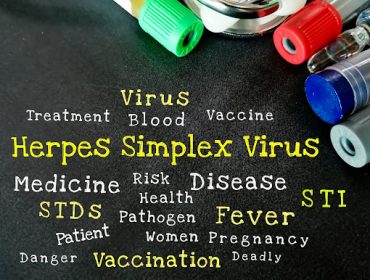Not Disclosing HSV
In the realm of sexual health, the conversation surrounding disclosing one’s HSV status to sexual partners is often complex and laden with emotion. While disclosure is encouraged as a means of fostering trust and transparency, navigating this territory can evoke fear, anxiety, and uncertainty. This article delves into the nuances of disclosing HSV status, exploring the ethical considerations, personal experiences, and potential consequences of both disclosure and non-disclosure. Through candid insights and real-life narratives, we aim to shed light on this often-sensitive topic, offering guidance and understanding to those grappling with the decision to disclose or not.
Not Disclosing HSV 2
When you start dating someone new, it can be difficult to know when and how to bring up the topic of sexual health. You don’t want to scare your partner off or make them feel uncomfortable, but you also don’t want to put yourself at risk for transmitting an STI. That said, there are many reasons why it’s important for both partners in a relationship—whether new or long-term—to have open conversations about their sexual histories and what they mean for their present and future. Here are some tips on how to have that conversation instead of not disclosing HSV-2.
A simple blood test can determine whether you’ve been exposed to herpes.
Not Disclosing HSV 1
A simple blood test can determine whether you’ve been exposed to herpes. If a person has never had symptoms and they get tested, it’s possible that the test will be negative even though they have the virus, but those chances are very slim. On average, it takes about two weeks for antibodies to develop after an initial exposure to HSV-1 or HSV-2. Whether the test is positive or negative it is your choice for not disclosing HSV-1 or 2.
Because this test is so reliable, there’s no need to worry about false positives or negatives: The results are proven and accurate 99% of the time! This is why we recommend that anyone who thinks they may have been exposed should get tested immediately. The same goes for people living with HSV who want confirmation about their status — even if it seems like nothing’s wrong at first glance (or even years later), these individuals should still take steps toward getting diagnosed in order to prevent future outbreaks from happening again down the road.
There’s no vaccine for herpes yet, but current research is promising.
On the bright side, there’s promising research on a herpes vaccine. Some people with HSV-2 have been successfully vaccinated against HSV-2. Vaccination may be an option for those who don’t want to take medication to prevent herpes outbreaks or who are unable to take it because of other health conditions.
Condoms, lube, and dental dams should always be part of your safer sex plan.
Avoiding skin-to-skin contact is the best way to prevent transmission of HSV, but many people still choose to have sex while infected. If you’re going to do that, you’ll need a barrier like a condom or dental dam (a thin sheet of latex) for safer sex.
The only way to know for sure if someone has herpes is through a blood test. New tests also allow doctors to distinguish between HSV-1 and HSV-2 when diagnosing someone with genital herpes.
Herpes can be transmitted even if the infected person doesn’t have symptoms.
Although HSV can be transmitted even if the infected person doesn’t have symptoms and has no visible blisters, it is more likely to be transmitted if there are visible signs of an outbreak.
The virus can still be spread even when there are no obvious signs or lesions of herpes (e.g., when someone has a cold sore). More than half of people with genital herpes don’t know they have it because they don’t experience herpes symptoms or recognize them as being part of a herpes infection. If you think you may have been exposed to the virus, talk with your healthcare provider about testing options.

Regular STI tests will help ensure your sexual health is in good shape.
Regular STI tests will help ensure your sexual health is in good shape. If you have HSV 2, the doctor will recommend that you get tested at least once a year to ensure that the virus has not become dormant and to identify any potential complications.
If you test positive for an STI, it’s important to know what steps to take next. Your doctor may prescribe medication or recommend an alternative treatment method like acupuncture or massage therapy. You can also opt for behavioral therapies that can help manage anxiety over having an STI or stop you from engaging in risky sexual behaviors (like unprotected sex).
Once you’ve taken care of those matters, remember to inform any partners so they can do the same! It’s crucial that everyone with whom you engage in sexual activity knows about their potential exposure risk. You can read real life examples of not disclosing HSV-2 reddit.
If your partner tests negative for HSV 2 but if they don’t feel comfortable receiving oral sex from someone who has HSV 1 (or vice versa), there are ways around this dilemma: make sure that any toys used during foreplay are thoroughly cleaned before use; use condoms when engaging in vaginal intercourse; avoid sharing razors and other personal grooming tools with anyone else who may be at risk of contracting herpes simplex virus type 1 or 2; avoid close contact with someone who has active symptoms (if possible); limit kissing on lips—alternatively, swap saliva by swiping lips together rather than locking lips together long enough for both parties’ mouths to open wide enough to let saliva exchange between them.
Some people choose to disclose their status before they have sex with someone new.
There are a lot of reasons to disclose herpes. Some people want to be open and honest with their partners, while others want to avoid stigma and discrimination. Some people think it’s important for their partner to know because they value mutual respect in relationships. Others feel strongly about being upfront about their health status so that their partner can make an informed decision about whether or not they want to get involved sexually with someone who has herpes.
Some people choose not to tell partners about having herpes until after sex has taken place. This is often because they’re afraid of rejection or judgment by potential partners; however, there are also some who may feel uncomfortable disclosing HSV1/HSV2 before sexual activity occurs due to personal beliefs that it’s best not knowing what sexual activities might take place (such as oral sex) prior to engaging in those activities together later on down the line – which could potentially mean “spoiling” things before either person gets all geared up emotionally first!
Remember that you are not alone if you are living with herpes.
Remember that you are not alone if you are living with herpes. The community of people who have herpes is very large and has many different support options.
- You can find online support with a blog or forum. Many bloggers write about their experiences living with HSV, and these blogs are often very helpful in understanding what it’s like to have the virus. There are also forums on Reddit where others discuss their experiences as well as ways they’ve coped with having HSV-2.
- In-person support groups provide an opportunity for people to share their stories, hear others’ perspectives on managing their condition, and ask questions about any concerns that may surface during this process. While there aren’t specific organizations dedicated solely to helping those who have genital herpes (though some do exist), many cities offer support groups for those living with STIs in general—and these groups often include several members who live with HSV-2 specifically! Check out your local health department website or Planned Parenthood location for details about group meetings near you; some public libraries also host regular discussions on various health topics so check there too!
- There’s also online therapy available through platforms such as BetterHelp for people looking for professional guidance when dealing with something like having an incurable sexually transmitted disease like HSV-1 or 2 (also known as Genital Herpes). Talking through issues such as stigma surrounding STDs may help lessen feelings of isolation among patients experiencing them firsthand.
Discussing sexual health and STIs with a partner can feel intimidating but it’s better to be open about STIs than hold them inside
Talking about sexual health and STIs with a partner can feel intimidating, especially if you are worried that they will react badly. However, it’s better to be open about STIs than hold them inside.

There are many ways to disclose STIs safely:
- Let your partner know before engaging in sex. For example, you could say “I have herpes” or “I have genital warts” before any intimate moments happen.
- Tell your partner when things are getting serious. If you’re dating someone long-term and thinking about having sex with him/her for the first time or every single time, it’s worth mentioning any STIs or other health issues before things escalate too far! This is also great news for both parties involved because now neither has any surprises waiting behind closed doors (or anywhere else really).
Conclusion
If you think that you might have herpes, it’s important to get tested. It can be scary to talk about STIs, but remember that you are not alone. There are many resources available to help guide your disclosure and answer any questions you may have. If you feel uncomfortable talking with your doctor or healthcare provider about testing options, then try reaching out online instead—you may find more people willing to share their experiences with HSV-1 or HSV-2 so they can offer support! But really, there is nothing to be afraid of when talking about herpes with a medical professional. They’ll be able to tell you what treatment options you may have and how to manage outbreaks.
Medically Reviewed by J. Frank Martin JR., MD on July 19, 2022
Secure and Confidential
STD testing services
The fastest results possbile - available in 1 to 2 days

Tagged
Categorized As
Author: Esther Jordan
Esther Jordan has been a writer ever since she can remember. She has always loved the free gift of self-expression through journaling, creating stories, and sharing life experiences in front of audiences. Public speaking and creating content has been a strong suit of hers since high school. Immediately after college, she received a paid position as an search engine optimization (SEO) writer in 2010 when SEO was still a very brick and mortar concept for a lot of small businesses. It was a time of do-it-yourself websites and online magic that everyone wanted and either referred to it as SEO or pay-per-click (PPC).




